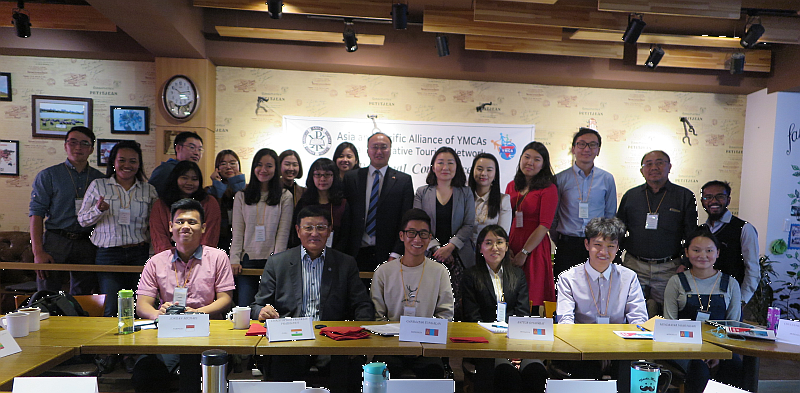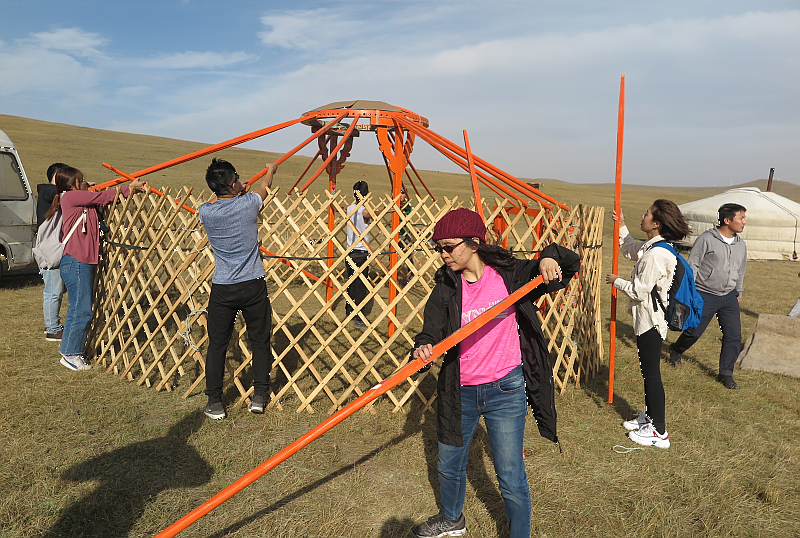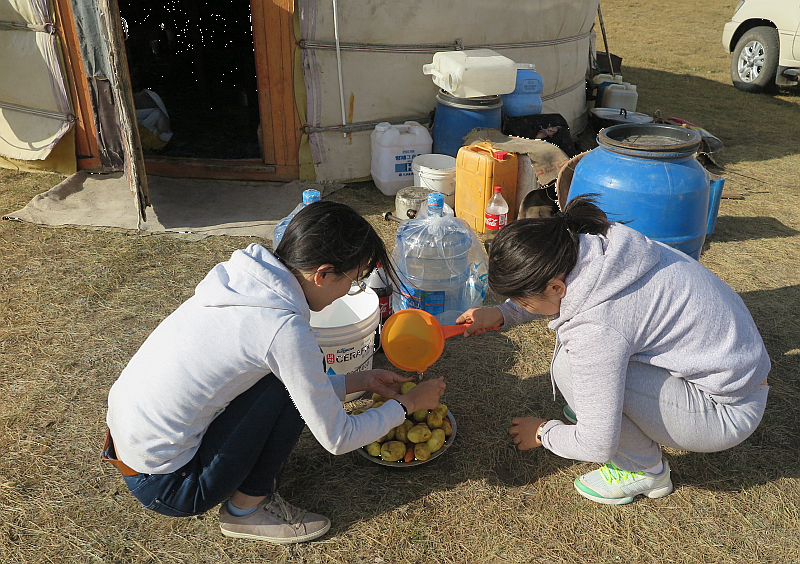4th Regional Conference on Climate Change: Sep 26-29, 2019, Ulaanbaatar, Mongolia
Last Updated (Friday, 11 October 2019 17:28)
4th Regional Conference on Climate Change in Ulaanbaatar

The APAY 4th Regional Conference on Climate Change was held on 26-29 September, 2019 at Ulaanbaatar, Mongolia. Sixteen youth leaders from Korea, India, Indonesia, Taiwan, Myanmar and Mongolia participated in the program jointly hosted by the Asia and Pacific Alliance of YMCAs and YMCA of Mongolia. It was the first regional program hosted by the YMCA of Mongolia.
The APAY runs E-Learning course on Climate Change, an online platform designed with 9 different modules covering different areas related to Climate Change. Participants who successfully complete the e-learning are required to design and implement an action plan based what they have learned. The Regional Conference on Climate Change was the final and concluding activity of APAY E-learning on Climate Change course which stretched over a 6 month period. At this conference, participants were provided additional information and resources on issues related to combating climate change that is not covered by the e-learning. Participants also had opportunity to exchange information and experiences related to combating climate change by their local communities and YMCAs.
The conference opened with music from “Horsehead Fiddle”, a traditional Mongolian 2-string violin. This was followed with welcome greetings by Munkhtsog Davaadorj, General Secretary of Mongolia YMCA and a short reflection by Javkhlantugs Ganbaatar, President of Mongolia YMCA.
 In the first session, Dr. Professor Adiyasuren from Eco-Asia College gave a presentation on “Sustainable Development Goals, Tourism and Climate Change”. Mr. Adiyasuren was also the former head of the Ministry of Environment and Tourism in Mongolia. He shared that Mongolia, which is a non-industrial desert country, contributes only a part of the global GHG emission and carbon footprint, yet it is impacted with very hot summers and very cold winters that often killed livestock and other animals. The extreme weather changes also caused migration of the nomad herders into the city of Ulaanbaatar. He emphasized that Climate Change effects Mongolia and that we have to take action on this global problem together.
In the first session, Dr. Professor Adiyasuren from Eco-Asia College gave a presentation on “Sustainable Development Goals, Tourism and Climate Change”. Mr. Adiyasuren was also the former head of the Ministry of Environment and Tourism in Mongolia. He shared that Mongolia, which is a non-industrial desert country, contributes only a part of the global GHG emission and carbon footprint, yet it is impacted with very hot summers and very cold winters that often killed livestock and other animals. The extreme weather changes also caused migration of the nomad herders into the city of Ulaanbaatar. He emphasized that Climate Change effects Mongolia and that we have to take action on this global problem together.
In the second session, Cristina Miranda-Lastima from APAY spoke on “Gender and Climate Change”. She took on a thought-provoking session bringing out the hard truth of the reality of sexism in the society. It was very engaging and interactive session.
The session on “Food and Water Security” was led by staff members from the Green Asia Network. The Green Asia Network NGO is committed in combating desertification and yellow dust storm by planting trees. This yellow dust storm starts from Mongolian Gobi desert area and travels to China, Korea and even to Japan. They emphasized that the yellow dust storm is a result of Climate Change so we have to take action together.
Water scarcity and access to clean drinking water is also closely related to climate change. In the session on “Water Footprint”, CHAN Beng Seng, coordinator for GATN explained the importance of being aware of our own water usage, both directly and indirectly. It is important that we to adopt a lifestyle that has both low-carbon as well as low-water footprint.
 The next day was our exposure day. In the morning, we visited to Mongolia Clean Water Center and learned about how they distribute clean water in the city. The MWCC introduced smart technology to control and distribute water usage in the Ulaanbaatar city. We also witnessed how people from communities in the poorer districts had to buy water in plastic containers from water filling stations and transport them back to their homes. In the afternoon, we went to Tuv Aimag province in the countryside and visited nomadic herder family. It was very valuable time and experience for most students to learn about how they live and also how precious water is to nomadic people. We also learned how to build Mongolian Ger dwelling in the steppes of Mongolia (round tent covered with skins/felt).
The next day was our exposure day. In the morning, we visited to Mongolia Clean Water Center and learned about how they distribute clean water in the city. The MWCC introduced smart technology to control and distribute water usage in the Ulaanbaatar city. We also witnessed how people from communities in the poorer districts had to buy water in plastic containers from water filling stations and transport them back to their homes. In the afternoon, we went to Tuv Aimag province in the countryside and visited nomadic herder family. It was very valuable time and experience for most students to learn about how they live and also how precious water is to nomadic people. We also learned how to build Mongolian Ger dwelling in the steppes of Mongolia (round tent covered with skins/felt).
And as the final part of the conference, all participants presented their Action Plans for combating climate change to show practical application of the knowledge gained from the e-learning. They introduced very unique ideas and programs to combat Climate Change in the local YMCA communities. Overall, it was fruitful time to conclude after completing e-learning course on Climate Change 2019 all summer.
